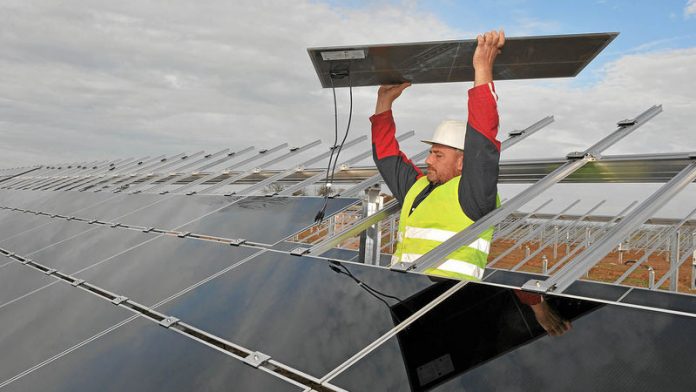While South Africa is on the brink of an energy crisis, with the threat of Stage 8 load shedding and total blackouts looming, you may be wondering why you should bother to invest in Africa’s energy sector. State-owned enterprises (SOEs) are in something of an ongoing shambles, but the private energy sector is booming, and Africa is a prime candidate for alternative energy sources. The growing renewable energy sector is a great investment decision.
Africa is rich in natural resources
It is well-known that Africa is one of the most resource-rich continents in the world, with gold, coal, mineral resources and natural gases being just some of its bounty. Sasol, one of South Africa’s largest private energy companies, has a number of coal mines across the country and processes the coal into liquid fuels such as petroleum and diesel. If you were looking to invest in JSE top 40 companies, Sasol would be a good bet.
In the latter half of the year, Nigeria will be embarking on its Bonga North Deepwater Project to re-establish itself as Africa’s top oil producer. The project may extract a potential 525 million barrels of crude oil from the Bonga North region as it rolls out.
Ghana is also projected to double its oil production capacity by the end of 2023, with the discovery of new deepwater fields in the Tan Cape Three Points Block, and ongoing extensive development at each site.
These examples are just the tip of the iceberg. Africa is primed to show the world that it means business, and the natural oil, gas and coal sector is likely where that’s going to happen.
Africa has a growing renewable energy industry
Load-shedding has been an ongoing problem in South Africa since 2007, so many have turned to renewable and alternative energy sources to keep their businesses going during blackouts. As a continent that has a lot of sunshine — it is known for being a warm destination — Africa is the perfect candidate for renewable energy projects, and many are already underway.
In South Africa, large-scale renewable energy projects have been operating for quite some time, with independent energy producers already capable of generating enough power to the main grid that it could replace two coal-burning power stations — the type responsible for constant breakdowns and thus, blackouts. The ongoing investment in solar power, onshore wind power and landfill gas projects will ensure that South Africa relies less heavily on coal and tips the scales towards clean energy in the future. This is good news for businesses, which will be able to enjoy a more stable power grid to support growth and attract foreign investment.
As one of Africa’s sunniest countries, Namibia has massive untapped potential for solar energy production. However, surprisingly at present, almost 60% of its power is imported from other countries. This is set to change, as the country has ambitious goals to roll out various projects to produce 70% of its energy from renewable sources by 2030. There is already a 10-hectare solar farm that produces 45MW of energy each year, and the 20 MW Khan Solar Power Station expected to be commissioned in early 2023.
Morocco is another country leading the way with solar power. The country receives over 3 000 hours of sunshine per year in the city regions and up to 3 600 hours in the desert regions. In 2016, Morocco launched one of the biggest concentrated solar power (CSP) projects in the world at its Quartzazate site, with an original goal to generate 560MW by 2020. By the end of 2022, it was generating 400MW of renewable energy, and further capacity is expected for the near future.
Europe needs to diversify its energy suppliers
Prior to Russia’s invasion of Ukraine, the outlook for Africa’s liquified natural gas exports was bleak due to strict rules around carbon emissions. However, that quickly changed when Europe learned just how important it was to start diversifying its energy suppliers when its reserves rapidly dwindled. While this kind of crisis hasn’t made countries do a total about-turn on their carbon emission policies, it also doesn’t mean that all is lost for Africa.
As a lot of development is taking place in the renewable and alternative energy sector in Africa, there is plenty of opportunity to tap into European markets abroad and export excess energy as more projects go live.
Final takeaway
With a number of JSE Top 40 companies operating in the energy sector, a wealth of renewable energy sources and great potential to feed power to foreign markets, the African energy sector is well worth investigating when it comes to where to make your next big investment.
Source : Mail & Guardian
















